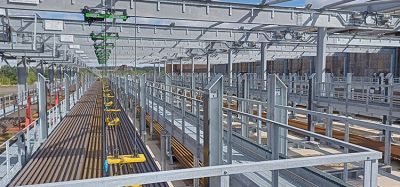Baltic states launch joint project for unified Rail Baltica management
Posted: 30 October 2024 | Global Railway Review | No comments yet
Latvia, Estonia and Lithuania have launched a joint project with EU support to unify the management and operation of the Rail Baltica railway, aiming to streamline cross-border services and infrastructure funding.


Credit: Rail Baltica
The transport ministries of Latvia, Estonia and Lithuania have officially launched a collaborative project to streamline the management and operation of the Rail Baltica railway, in cooperation with the European Commission’s Directorate-General for Structural Reform Support (DG REFORM) and funded by the EU’s Technical Support Instrument (TSI). The project, implemented by consultancy firm Ernst & Young Advisory SAS, seeks to harmonise cross-border infrastructure management and transportation services to boost operational efficiency across the railway.
During a kick-off meeting held on 25 October 2024, in Riga, project stakeholders reviewed strategic objectives and methodologies aimed at addressing administrative differences that could affect seamless cross-border operations. The primary goals of the project focus on three areas: developing a unified approach to public service obligations (PSO), creating an effective legal and institutional framework for infrastructure management and establishing a funding model for essential infrastructure such as depots and stations that are not directly covered by the Connecting Europe Facility (CEF) funding.
The project also plans to conduct a case study to draft guidelines for joint cross-border service delivery in compliance with EU Regulation (EC) No 1370/2007 on public passenger transport services. Historically, Latvia, Estonia and Lithuania have managed their PSO frameworks individually. This initiative aims to enable these services to extend seamlessly across national borders, maximising the capacity and utility of Rail Baltica’s infrastructure.
In addition, the project will provide recommendations for a unified legal framework that respects each country’s ownership of Rail Baltica’s infrastructure while ensuring alignment with EU legislation. This involves harmonising safety standards, traffic control, fee structures and other operational aspects to establish a cohesive regional railway network.
To support funding for additional infrastructure, the project team will explore new financing options, engaging both EU and national funding sources. The EU’s CEF programme currently supports up to 85% of the direct costs for core railway structures, but additional sources are needed for indirect infrastructure costs.
Regular meetings will be held between Baltic transport ministries and Ernst & Young to ensure effective implementation and data sharing, with collaborative oversight from DG REFORM. The project aims to set a new standard for integrated rail operations across the Baltics and strengthen regional connectivity.
The Technical Support Instrument (TSI) provided by the European Commission is designed to assist EU Member States with technical expertise for structural reforms, managed by DG REFORM without requiring co-financing from national governments.








